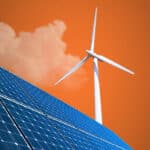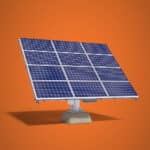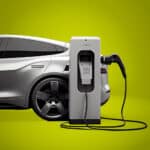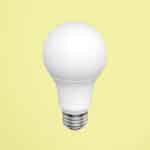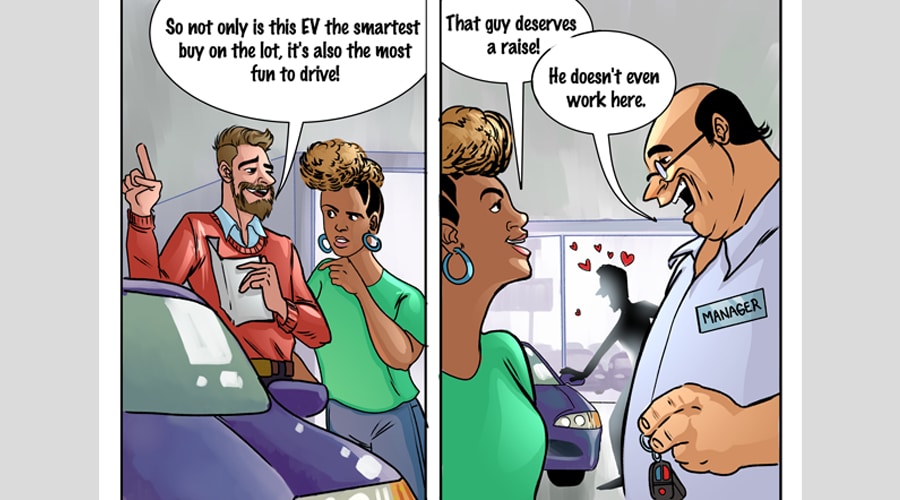Have a neighbor who owns an electric vehicle? Ask them to tell you about it—or better yet, to let you take it for a spin. Pretty soon, you may be headed to the dealer as well. Studies show that word of mouth is one of the best ways to speed the EV revolution, and that current owners are among the top advocates for the low-maintenance, emission-free vehicles.
Peer influence—a.k.a. “the neighborhood effect”—is shown to have a bigger impact on the uptake of clean energy tech than things like glitzy advertising, expert knowledge, or even social media reviews. A recent survey by Autolist.com found that personal recommendations from friends, family, or coworkers had the most influence on a person’s vehicle purchase, with 52 percent of respondents saying it had governed their buying choice. “When someone in your immediate circle has a good or bad experience with anything, it makes you feel better about making the same decision,” an Autolist analyst explained. “Because cars are such a huge purchase in our lives, word of mouth means that much more here.”
Studies show that word-of-mouth is one of the best ways to speed the EV revolution.
Steve Hanley, a self-proclaimed “ambassador for the electric vehicle lifestyle,” noted that, as the first EV buyer in his area, he was able to dispel common misconceptions that his neighbors had about the Nissan LEAF, including its 226-mile battery range. “When I explain it is adequate for 90 percent of my driving needs and can go several days without recharging, they begin to see how an electric car could fit their needs as well,” he said. Just driving around town helps to break down the barriers to greater EV demand, Hanley explained, as “fear of the unknown subsides and people become more receptive of the newfangled oddity in their midst.”
Automaker Tesla has been a perfect test case for the power of peer effects on car buyers. The company is notorious for avoiding traditional marketing and advertising, but it still outsells all other EV brands, partly because Tesla owners love to convert people they know into EV drivers. In a study involving 5,000 purchasers of Tesla’s all-electric Model 3 sedan, 99 percent of the participants were satisfied with the car and were willing to recommend it to friends and family. In Hawaii, researchers found that for every 26 Tesla EVs sold in a zip code, the peer influence of just seeing the vehicles in the vicinity generated at least one additional Tesla sale. “What we’re seeing is that word of mouth is more than enough to drive our demand in excess of production,” said Tesla CEO Elon Musk.
Largely because people have enjoyed their interactions with EV owners, more and more carmakers are capitalizing on word-of-mouth sales. At the 2019 Los Angeles Auto Show, the CEO of Mercedes-Benz USA said: “It’s a question of experience. I think it’s getting cars on the road and having people speak of their experience positively.” Similarly, GM’s president acknowledges that, “Word-of-mouth will be critical” to increasing the demand for EVs. (It also doesn’t hurt that the nation’s EV charging network is expanding rapidly and that battery costs are plummeting, making the vehicles more convenient and affordable by the day.)
Sure, there’s still the challenge of bridging the gap between a person’s expressed interest in buying an EV and their actual following through with the purchase. But as more models come on the market and as more people “know someone (or know someone who knows someone)” who has an EV, this will quickly change. Watching more of our neighbors zipping to work or to the grocery store in their clean energy vehicles—and talking to them about their experiences—will make more of us want to go electric (you could be next!). And if you’re already a proud EV owner, you’re more valuable than you think: just keep singing the praises of your silent ride, and you may soon see all your neighbors plugging in.
Want to learn more about going electric? Join Generation180 for Electrify Your Ride Week (Sept 27–Oct 3), a full week’s worth of virtual events all about electric vehicles, including an e-bike giveaway, myth-busting trivia, and discussions ranging from how to drive on sunshine to workplace charging and effective government policies.
Originally published in the 9/23/20 edition of our Flip the Script newsletter
